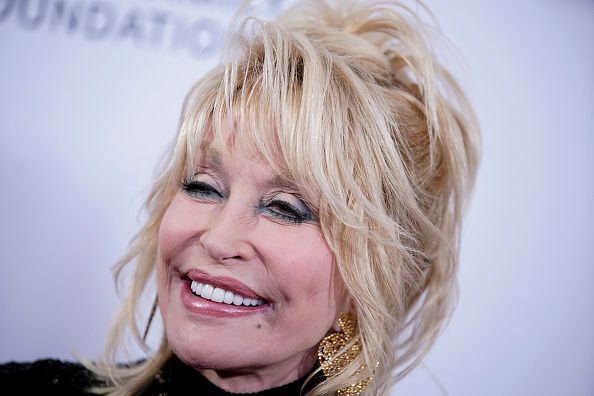
(Bloomberg Opinion) — Podcasting wasn’t invented in the 2010s, but it certainly came into its own during the last half of the decade. When “This American Life” released the first season of “Serial” in the fall of 2014, publishers suddenly realized: Real money could be made off these things!
Soon podcasting went from being something you did in basements and broom closets to something done by Ellen and Dr. Phil. It’s enough to make an early-days podcaster feel, well, a little wistful.
As podcasting enters a new decade, and a more mature life stage, don’t let this first phase end without listening to some of the great shows from the 2010s. I will not try to be exhaustive; instead, I’m limiting myself to narrative miniseries shows that deal with power, politics or business (even if in some cases it’s kind of a side-eye glance at business).
‘The Dream’ The first season takes a deeply reported and highly skeptical look at multi-level marketing schemes. If you’ve ever paused in your scrolling to wonder why so many of your Facebook friends want to invite you over to try their cosmetics, an extremely binge-able 11 episodes from “Little Everywhere” and “Stitcher” will explain all, and leave you wondering how this can possibly be legal. Their second season, on the wellness industry, just launched in December. ‘The Dropout’ If you can’t get enough of the wild story of Elizabeth Holmes’s Theranos — or just can’t seem to get around to reading the copy of “Bad Blood” you bought — you’ll enjoy this six-part account of how the Stanford dropout with the fake-deep voice conned investors, employees and the media into believing her too-good-to-be-true tale. No matter how many times I read/hear/watch this story, I never get tired of it.
‘Running from COPS’ No matter what he’s talking about, Dan Taberski’s narration manages to be so delightful that I’d listen to him read a list of shampoo ingredients. But this six-episode show from Pineapple Street Studios is much more interesting, even for someone (like yours truly) who has never watched a single episode of the ubiquitous “reality” policing show. Taberski himself is a veteran of the reality-TV industry, and uses his insight into how the sausage is made to explore how the long-running show’s popularity has changed policing, recruiting and interactions with citizens.
‘Dolly Parton’s America’ From the brain and vocal chords of Jad Abumrad (of Radiolab fame) and WNYC studios come nine gorgeous episodes that seek to explain how the Tennessee singer became so beloved in a country that can’t seem to agree on anything but its love for her. But at an even more fundamental level than that, I enjoyed this podcast purely for its entrepreneurial up-by-her-rhinestone-bootstraps story. (For hip-hop fans, season one of ‘Mogul,’ produced by Gimlet, offers a look at a very different rags-to-riches music industry story.)
‘Bear Brook’ This engrossing true-crime tale from New Hampshire public radio looks at a cold case almost completely solved (spoiler alert) in 2019. As with the better-known Golden State Killer case, the breakthrough hinged on DNA submitted voluntarily to those wildly popular find-lost-relatives, track-your-ancestors databases. A thought-provoking look at the unintended consequences of a burgeoning, and not all that regulated, industry.
‘Slow Burn’ ’Tis the season of impeachment, so what better time to brush up on your knowledge of prior presidents’ improprieties? Seasons 1 and 2 look at Richard Nixon and Bill Clinton, respectively, and capture what it felt like to live through those scandals when the outcome wasn’t certain, and every random red herring seemed like it could be The Final Straw.
‘Russia, If You’re Listening’ To my ear, this is the single best podcast out there on our current president’s impeachment crisis. Over three seasons, it looks at Donald Trump’s campaign ties with Russia; the run-up to and aftermath of the Mueller report; and the rise of Vladimir Putin. It’s also Australian — produced by the Australian Broadcasting Corporation — which gives it a healthy dose of distance. Somehow, despite the heavy subject matter, it’s really fun to listen to.
‘Believed,’ ‘Dr. Death’ and ‘The Shrink Next Door’ This trio of podcasts will have you questioning the implicit trust we put in the people wearing white coats. “Believed” (produced by NPR and Michigan Radio) focuses on Larry Nassar, and how he managed to get away with abusing hundreds of young gymnasts for so long — many of them while their parents were in the room. It’s a tough listen, but an important one. “Dr. Death,” from Wondery, asks why a destructive quack surgeon was so hard to stop. And “The Shrink Next Door,” from Wondery and my Bloomberg Opinion colleague Joe Nocera, turns the lens of medical malpractice onto the mental-health arena.
‘Petty Tyrant’ Technically, this is not a standalone podcast. Instead, it’s a classic two-part episode by “This American Life” that I just can’t unhear. The story of how a high school janitor managed to terrorize an entire town — narrated and reported by a pre-”Serial” Sarah Koenig — is a bizarre illustration of just how completely even a small amount of power can corrupt. Something to keep in mind as we head into a new year: We each have some amount of influence, no matter how small, and we we each have the power to decide how we’ll use it.
To contact the author of this story: Sarah Green Carmichael at [email protected]
To contact the editor responsible for this story: Katy Roberts at [email protected]
This column does not necessarily reflect the opinion of the editorial board or Bloomberg LP and its owners.
Sarah Green Carmichael is an editor with Bloomberg Opinion. She was previously managing editor of ideas and commentary at Barron’s, and an executive editor at Harvard Business Review, where she hosted the HBR Ideacast.
<p class="canvas-atom canvas-text Mb(1.0em) Mb(0)–sm Mt(0.8em)–sm" type="text" content="For more articles like this, please visit us at bloomberg.com/opinion” data-reactid=”37″>For more articles like this, please visit us at bloomberg.com/opinion
©2019 Bloomberg L.P.












